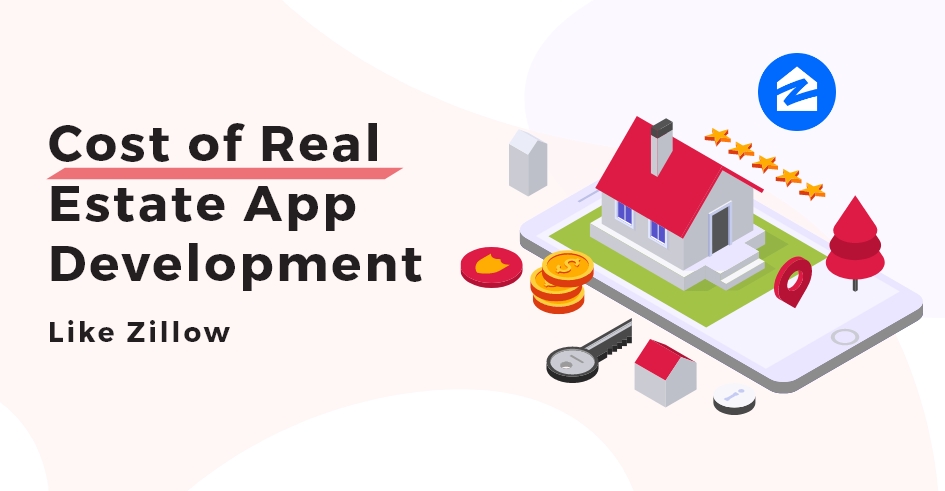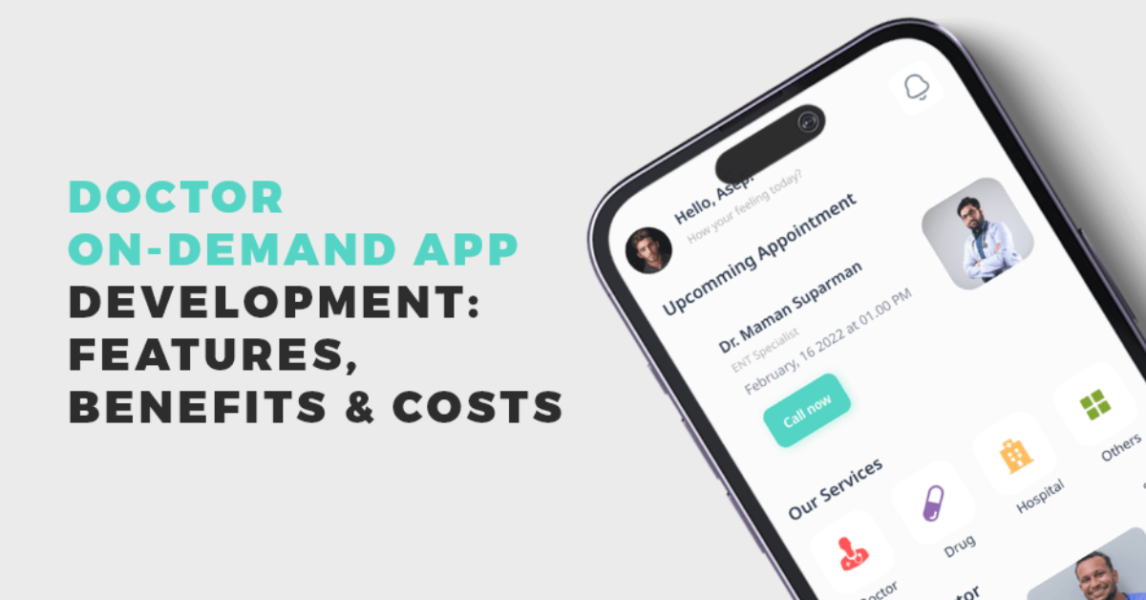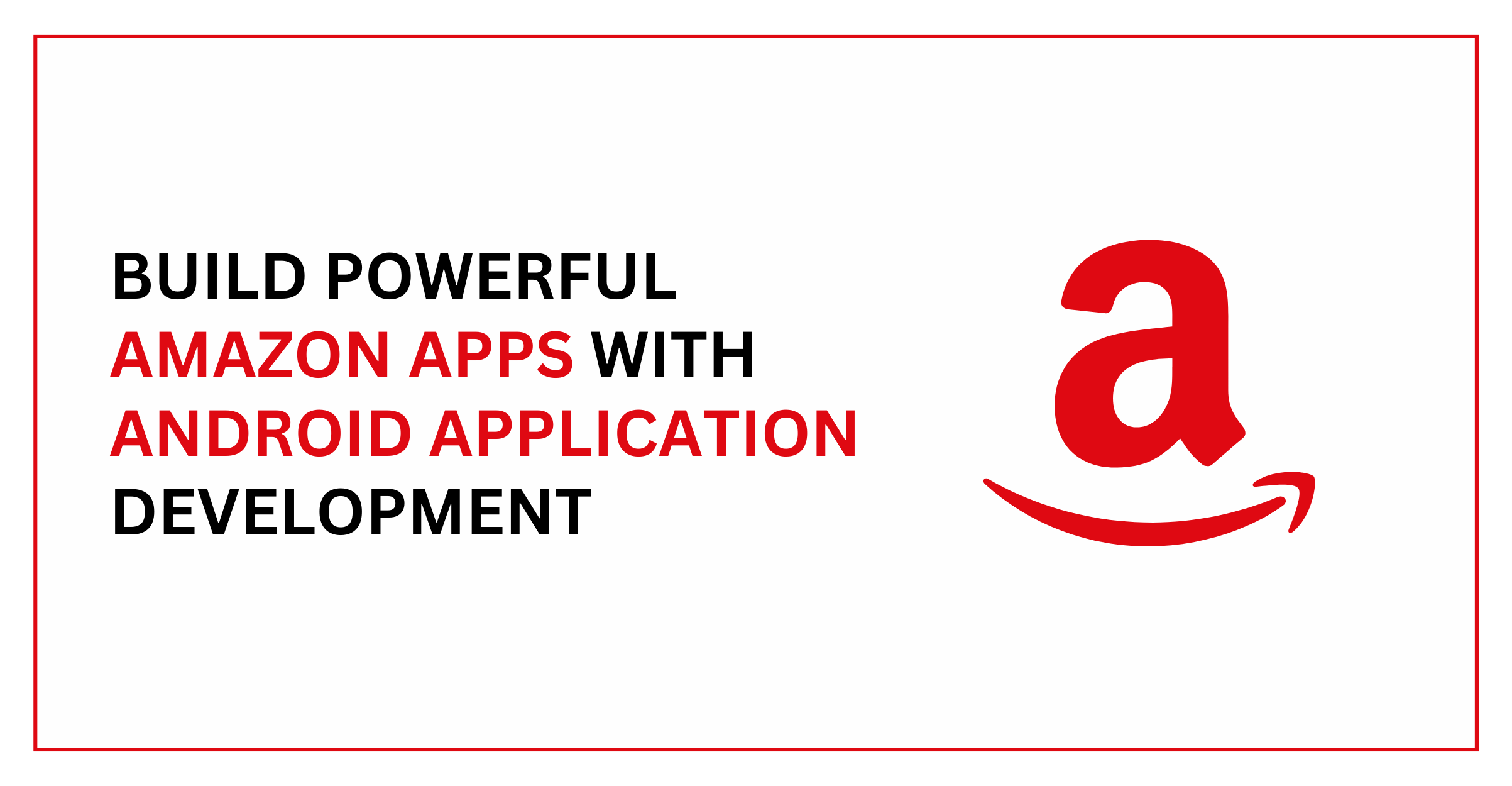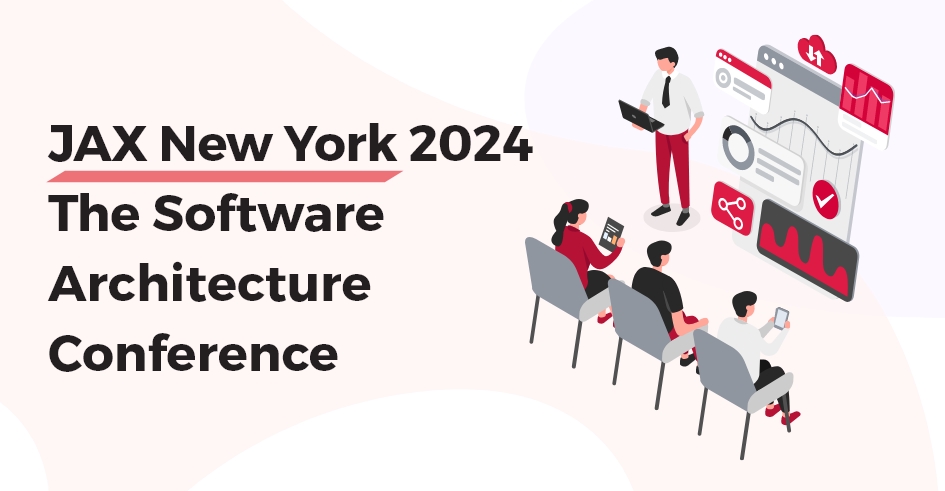The cost of real estate app development like Zillow ranges from $20,000 to over $300,000, Depending on several factors, such as Complexity, Development time, Target Devices, and more. Custom designs, exclusive features, and distribution platforms are other elements that may impact the cost.
To make a real estate app like Zillow, many factors affect pricing—from feature set and development phases to platform choices—making it challenging to estimate your total investment accurately.
Without a clear and detailed understanding of these costs, you risk overspending or compromising on key features, which could significantly impact your app’s success. So here’s the deal: TechnBrains, Top real estate app development company, is here to help with an actionable guide to navigate these challenges effectively.
In this comprehensive guide, we will explore real estate app development cost like Zillow. We will break down these costs by feature, offer real-world examples, and provide practical advice to help you budget accurately and make informed decisions about your app development project.
Cost Breakdown: Real Estate App Development Like Zillow
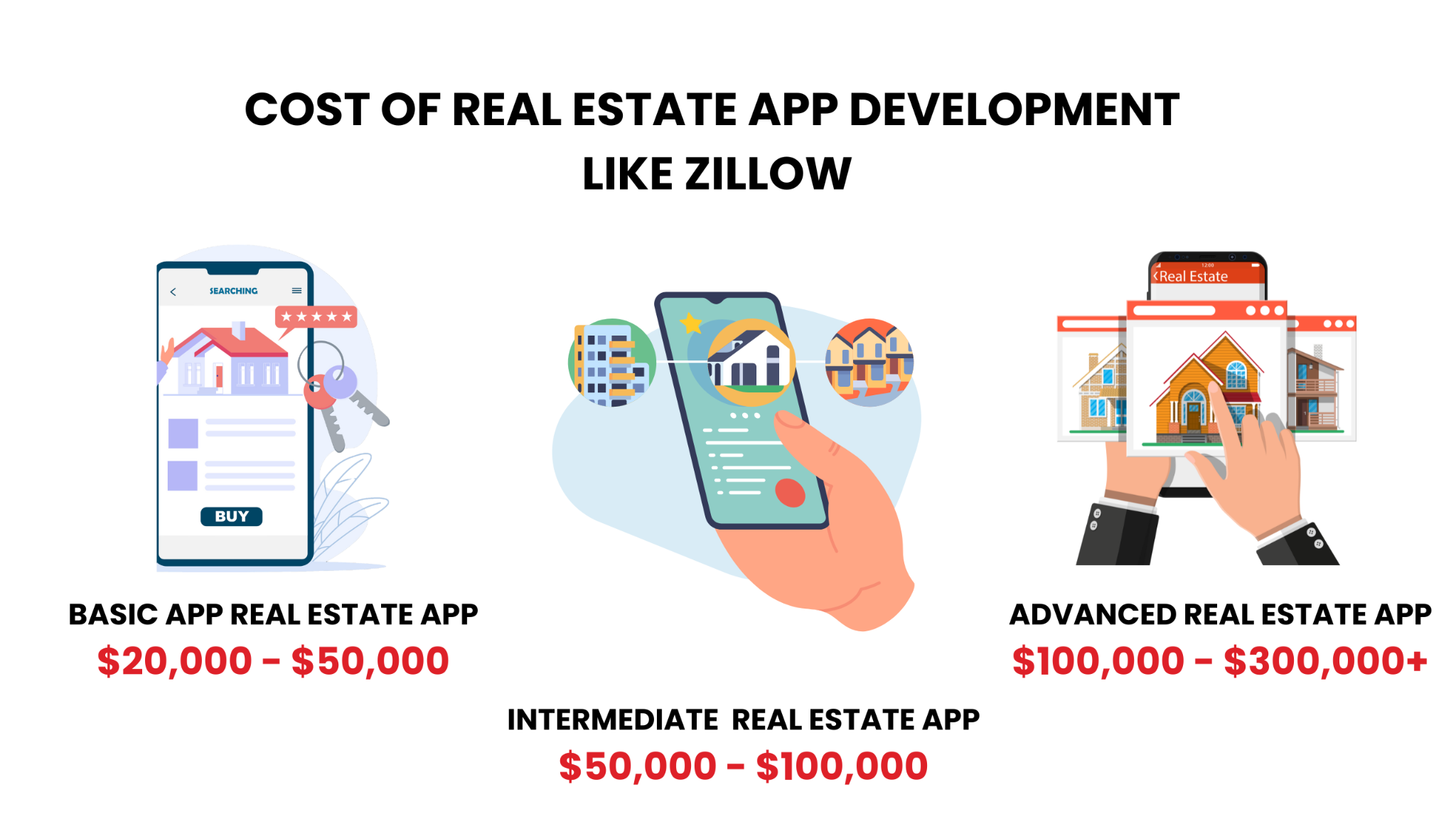
To give you a clearer perspective, here’s a brief breakdown of real estate app development costs associated with developing a real estate app similar to Zillow:
Basic Real Estate App (Property Listings, Search, User Profiles): $20,000 – $50,000
It Includes Basic property search functionalities, listing management, and user registration.
Intermediate Real Estate App (Geolocation, Advanced Search Filters): $50,000 – $100,000
It Includes Geolocation services, advanced search filters, and possibly a basic chat feature.
Advanced Real Estate App (Augmented Reality, AI Features, Data Analytics): $100,000 – $300,000+
It Includes High-end features such as AR for virtual property tours, AI-driven property recommendations, and extensive data analytics.
Why Develop an App Like Zillow?
Zillow is a top online real estate marketplace launched in 2006 by Rich Barton and Lloyd Frink. It transformed the real estate industry with its extensive digital platform and core product—an extensive database of real estate listings with property details, photos, and pricing estimates. Zillow also offers innovative tools like the Zestimate® algorithm, which estimates home values based on various data inputs.
Creating an app like Zillow can be a strategic move for entrepreneurs, real estate professionals, and tech developers like you. It can help you capitalize on the booming real estate market. Zillow has set a high standard in the real estate technology space, offering a comprehensive platform for property searches, market analysis, and more. Here’s why developing an app like Zillow can be a smart decision:
Expanding Market Opportunities
The real estate industry is a multi-trillion-dollar market with continuous growth in property transactions, rentals, and real estate investments. By developing an app like Zillow, you tap into a vast and lucrative market. The global Real Estate market is expected to expand by 2.77% between 2024 and 2029, leading to a market size of US$727.80tn in 2029. (Source: Statista)
Centralized Information
Apps like Zillow offer a centralized platform where users can access extensive property listings, including detailed descriptions, photos, and pricing information. By providing all relevant information in one place, you enhance user experience and increase the likelihood of engagement and conversion.
Integration of Modern Technologies:
It incorporates technologies such as augmented reality (AR) for virtual tours and machine learning for personalized recommendations, enhancing user engagement and distinguishing the platform from competitors.
Revenue Generation Opportunities
Includes advertising, premium listings, and subscription models to monetize the platform effectively.
User Engagement and Retention
Provides user accounts, saved searches, notifications, and personalized recommendations to improve engagement. Customizes the user experience based on preferences and behavior to increase loyalty and retention.
Key Factors Influencing Real Estate App Development Cost
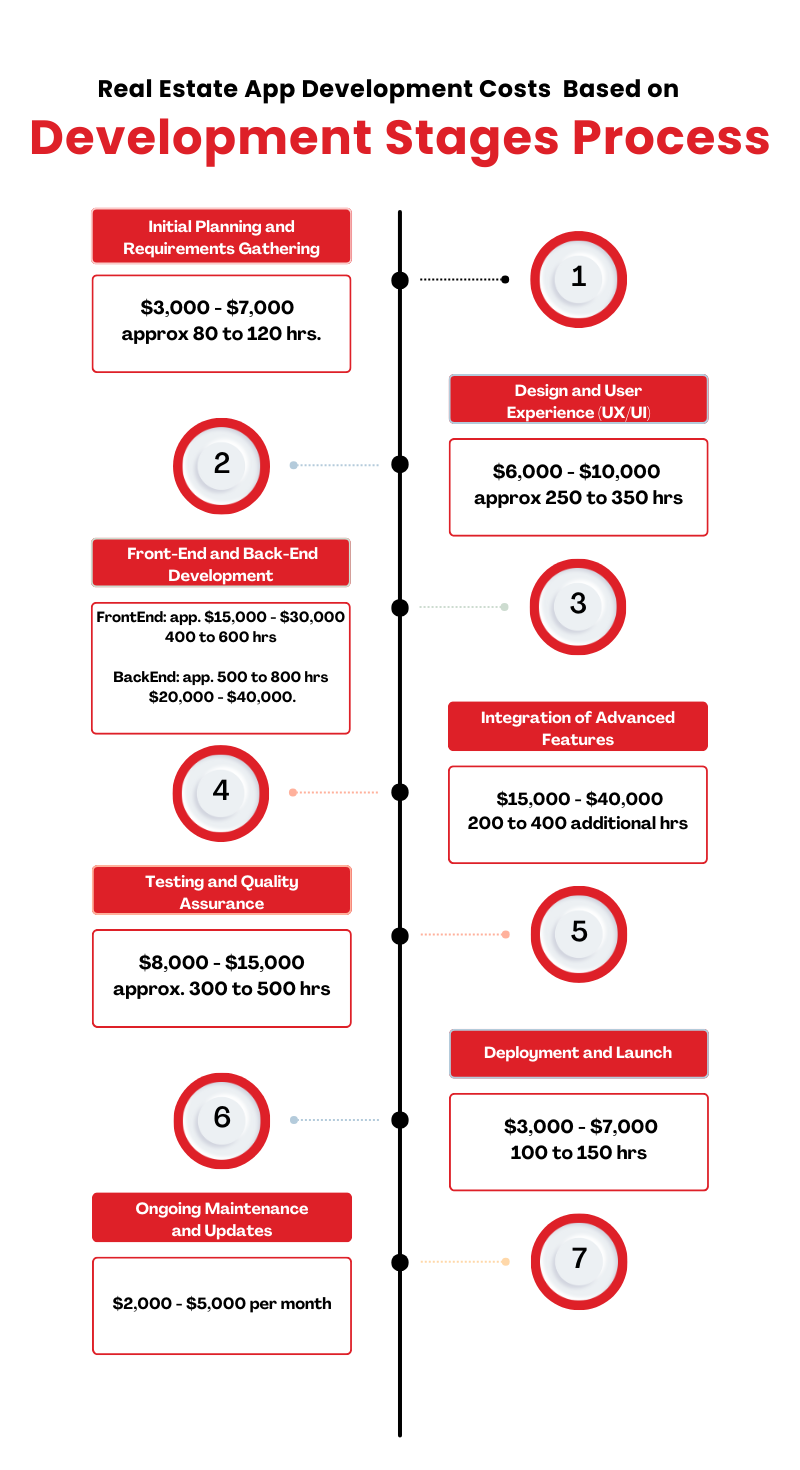
Now that we all agree that building an app like Zillow is a promising investment let us get to the real estate app development cost it might bring. Developing an app like Zillow or a commercial real estate app involves more than just coding—it’s a multi-faceted process with several factors influencing the final real estate app development cost.
1. Basic Features
Basic features are the important features of any real estate app, including property listings, search capabilities, and user profiles. These functionalities are essential for the app’s core operations and are typically less costly to implement.
Real estate app development cost Estimate for a basic real estate app usually ranges between $20,000 and $50,000. This includes necessary functions for users to browse properties, filter searches, and manage profiles.
2. Advanced Features
Advanced features can significantly increase the real estate mobile app development cost. Examples include:
- Geolocation: For locating properties based on users’ current positions.
- Augmented Reality (AR): For virtual property tours, like to the Zillow tech stack, enhancing user interaction with immersive experiences.
- Sophisticated Data Analytics: For detailed market insights and property valuations.
Real estate app development cost Estimate for an advanced real estate app can elevate development costs to $300,000 or more, depending on the complexity and scope.
3. Complexity of Features
The complexity of features integrated into the app affects the overall cost. High-end functionalities like AR, machine learning for personalized recommendations, and real-time data integration require more development time and technical expertise. Features such as AR for virtual tours and complex analytics tools demand advanced technology and development skills, which contribute to higher real estate app development costs.
4. Development Team
The choice of your development team and its geographical location significantly impact the real estate app development cost. Specialized skills in real estate app development or advanced technologies can command higher rates. Hiring developers with experience in creating real estate apps like Zillow ensures higher quality and performance but may increase the overall cost.
Outsourcing vs. In-House Development
When choosing between outsourcing and in-house development, consider the following:
- Outsourcing: Can be more cost-effective and provide access to a global talent pool. However, it may involve challenges in communication and quality control.
- In-house: This option offers more control over the development process and better alignment with your business goals, but it can be more expensive due to higher labor costs.
Bonus Tip: To optimize real estate app development costs while still accessing top-tier talent, consider leveraging staff augmentation services. These services allow you to bring in skilled professionals on a temporary basis, which can be a cost-effective solution for accessing specialized expertise. For more information on how staff augmentation can benefit your project, visit our Staff Augmentation page.
5. Development Time
The time required to develop the app affects the total cost. More complex apps with advanced features will extend the development timeline, which in turn increases costs. Includes design, coding, and testing. Longer development timelines typically result in higher expenses.
6. Target Devices and Platforms
Deciding between developing a native app for each platform (iOS and Android) or a cross-platform app impacts real estate app development costs. Native Apps are More expensive due to the need for separate codebases. Cross-platform apps are Generally more cost-effective but may have some limitations compared to native apps.
7. Custom Designs
Custom designs tailored to the app’s brand and user experience contribute to the real estate app development cost. High-quality, bespoke designs ensure a unique and engaging user experience. It involves custom graphics, animations, and branding elements, which can drive up costs.
8. Revenue Generation Opportunities
An app like Zillow can generate revenue through multiple channels:
- Advertising: Charging real estate agents and property managers for advertising listings.
- Premium Listings: Offering enhanced visibility for property listings.
- Subscription Models: Providing advanced features or market insights through a subscription.
- Impact on Cost: Implementing and managing these revenue models requires additional development and maintenance efforts.
9. Distribution Platforms
Publishing on major app stores involves fees and compliance costs. Ongoing maintenance for updates and bug fixes also contributes to the overall real estate app development cost. For example, cash advance apps like Dave may have costs associated with maintaining your app on distribution platforms.
10. Security and Compliance
Implementing robust security measures and ensuring compliance with data protection regulations (e.g., GDPR, CCPA) adds to real estate app development costs. Secure authentication methods and data protection protocols are necessary but increase overall expenses.
11. Integration of Modern Technologies
Incorporating cutting-edge technologies can result in higher real estate app development costs as:
Real Estate App Development Costs Based on Development Stages
Creating a real estate app, especially one as sophisticated as Zillow, involves multiple stages of development, each contributing to the overall cost. Understanding these stages can help you better budget and plan for the creation of a high-quality real estate application. Here’s a detailed look at the various phases and their associated costs:
1. Initial Planning and Requirements Gathering
Before any coding begins, substantial time and effort are spent defining the project scope, gathering requirements, and planning the app’s features. This initial phase involves consultations, market research, and drafting detailed specifications. On average, this stage can cost between $3,000 and $7,000 and may take 80 to 120 hours.
2. Design and User Experience (UX/UI)
Design is critical for ensuring a user-friendly and visually appealing app. The UX/UI design phase involves creating wireframes, prototypes, and final designs that guide the development process. Real estate app development costs between $6,000 and $10,000 and requires approximately 250 to 350 hours. The quality of design directly impacts user satisfaction and engagement, making it an essential investment.
3. Front-End and Back-End Development
The development phase is where the core functionalities of the app are built. This includes both front-end (user interface) and back-end (server-side) development.
- Front-End Development: This focuses on the user-facing part of the app, ensuring it is interactive and responsive. It usually takes around 400 to 600 hours and costs between $15,000 to $30,000.
- Back-End Development: This involves creating the server, database, and application logic that support the front-end functionalities. It typically requires 500 to 800 hours and can cost between $20,000 to $40,000.
Together, front-end and back-end development can account for a significant portion of the real estate app development cost budget.
4. Integration of Advanced Features
Integrating advanced features such as augmented reality (AR) for virtual property tours or sophisticated data analytics tools can substantially increase development costs. This phase generally involves 200 to 400 additional hours and can cost between $15,000 to $40,000, depending on the complexity and the specific features being implemented.
5. Testing and Quality Assurance
Thorough testing is essential to ensure the app functions correctly across various devices and scenarios. This phase includes unit testing, integration testing, and user acceptance testing (UAT). The testing and QA phase usually takes around 300 to 500 hours and costs between $8,000 to $15,000. It ensures that the app is free of bugs and performs as expected.
6. Deployment and Launch
Once the app is tested and finalized, it’s prepared for launch. This stage involves deploying the app to app stores, setting up server environments, and configuring analytics tools. The cost for deployment can range from $3,000 to $7,000 and generally requires about 100 to 150 hours.
7. Ongoing Maintenance and Updates
Post-launch, the app requires regular maintenance to fix bugs, update features, and ensure compatibility with new operating system versions. Maintenance typically costs between $2,000 to $5,000 per month, depending on the level of support needed. Annual costs for ongoing maintenance range from $2,000 to $5,000 per month.
Estimated Total Cost
Combining all these stages, the total cost to develop a high-quality real estate app like to Zillow generally falls between $75,000 to $200,000. The final figure depends on factors such as the complexity of features, the experience level of the development team, and the scope of the project.
Building Your Real Estate App
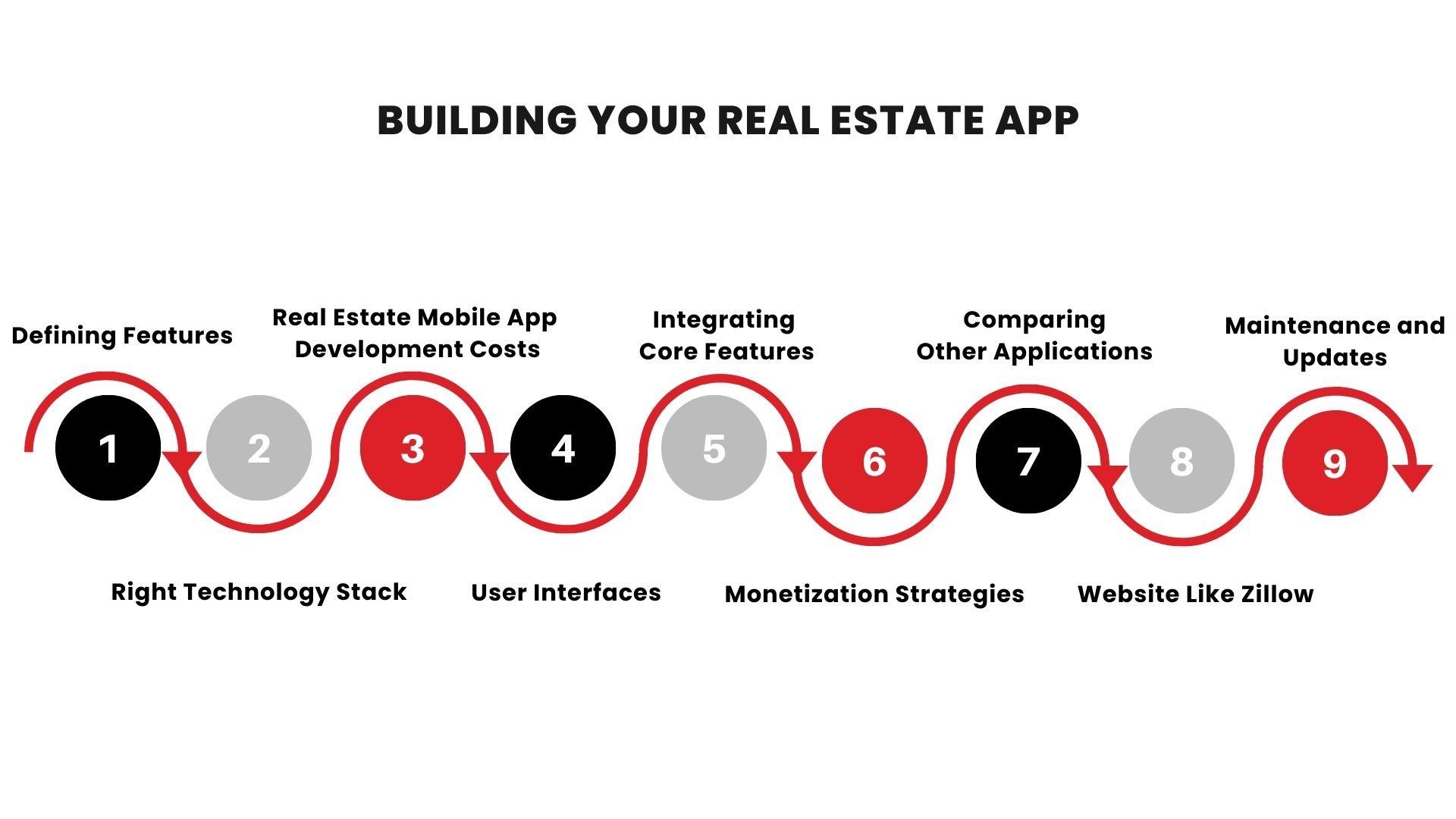
By evaluating the scope of features and technological requirements, you can gain a clearer understanding of the overall investment necessary for developing a high-quality app. Here is how our developers for hire do it:
1. Defining Features for Real Estate Apps Like Zillow
To develop a successful app like Zillow, it’s essential to define and implement key features that will attract and retain users.
This involves integrating comprehensive property listings, advanced search filters, and interactive map functionalities. Ensuring that your real estate application development includes these critical features helps your app meet user expectations and distinguish itself in the competitive real estate market.
2. Choosing the Right Technology Stack
As mentioned in the blog, understanding the Zillow tech stack can provide valuable insights. Zillow’s technology stack includes a mix of modern programming languages, frameworks, and databases that contribute to its robust and scalable platform. By analyzing how Zillow utilizes these technologies, you can select the right tools and platforms for your own real estate app development, ensuring that your app is both functional and scalable.
3. Estimating Real Estate Mobile App Development Costs
Accurately estimating the cost of real estate mobile app development is crucial for budgeting. Factors such as app complexity, target platforms (iOS, Android, or both), and the feature set all impact the overall cost. As detailed in the blog, developing an app like Zillow can range from $20,000 to over $300,000, depending on these variables. A thorough estimation process will help you plan effectively and understand the financial commitment required.
4. Designing User Interfaces for Real Estate Applications
A well-designed user interface is fundamental to creating a user-friendly real estate app. By focusing on intuitive and visually appealing design, you enhance the user experience and ensure that your app is easy to navigate.
5. Integrating Core Features in Your App Like Zillow
Effective integration of core features is essential for building an app like Zillow. This includes incorporating functionalities such as detailed property listings, high-quality images, and interactive maps. Additionally, integrating advanced features like virtual tours and mortgage calculators adds significant value and enhances the user experience. Proper integration ensures that your app delivers a comprehensive and immersive real estate experience.
6. Monetization Strategies and Understanding Zillow Application Fee
When developing your real estate app, it’s important to consider monetization strategies and understand how the Zillow application fee structure can inform your approach. Zillow’s revenue comes from various sources, including advertising, premium listings, and real estate services.
7. Comparing Mobile App Development for Real Estate with Other Applications
Real estate apps like Zillow have unique requirements compared to other types of mobile applications. These include handling large datasets, integrating complex search functionalities, and utilizing advanced mapping services.
8. Building a Website Like Zillow: Integration and Strategy
If you’re also planning to create a website alongside your mobile app, consider how to build a website like Zillow. Focus on creating a responsive design that mirrors the functionalities of your mobile app.
9. Planning for Ongoing Maintenance and Updates
Finally, long-term maintenance and updates are essential aspects of real estate app development. Regular updates to fix bugs, add new features, and adapt to technological advancements are necessary for keeping your app current and effective. Including these ongoing costs in your budget ensures that your app continues to meet user needs and remains competitive in the market.
Minimize Real Estate App Development Cost With TechnBrains
Don’t let high real estate app development cost stand in the way of your app’s success. Let TechnBrains guide you towards a cost-effective and efficient solution. Our expert team is dedicated to delivering high-quality solutions while keeping your budget in check.
Why Choose TechnBrains?
- Strategic Cost Management: We provide a detailed cost analysis and strategic planning to ensure that every dollar you invest is used efficiently.
- Tailored Solutions: Our team customizes development plans based on your specific needs, avoiding unnecessary expenses and focusing on essential features.
- Expert Guidance: Benefit from our extensive experience in real estate app development to make informed decisions that align with your budget and objectives.
Our Services Include:
- Cost-Efficient Development Planning: We’ll help you understand where your budget goes and how to allocate resources wisely.
- Feature Prioritization: Focus on the most impactful features to ensure you get the most value for your investment.
- Technology Optimization: Leverage our expertise to choose the right technology stack that balances cost and functionality.
Ready to take control of your real estate app development costs?
Contact us today for a free consultation and learn how TechnBrains can help you build a successful real estate app while keeping your expenses under control.


